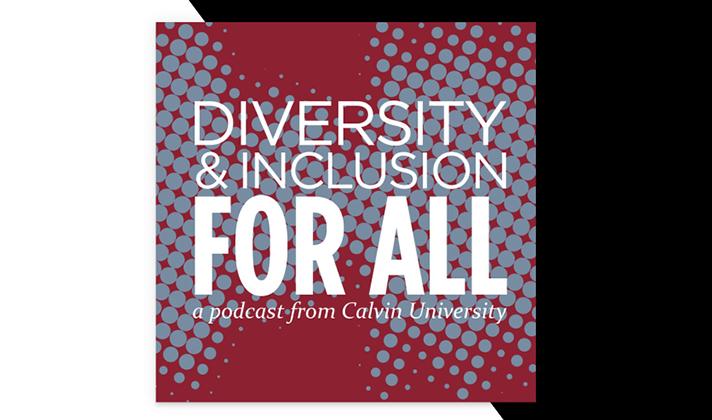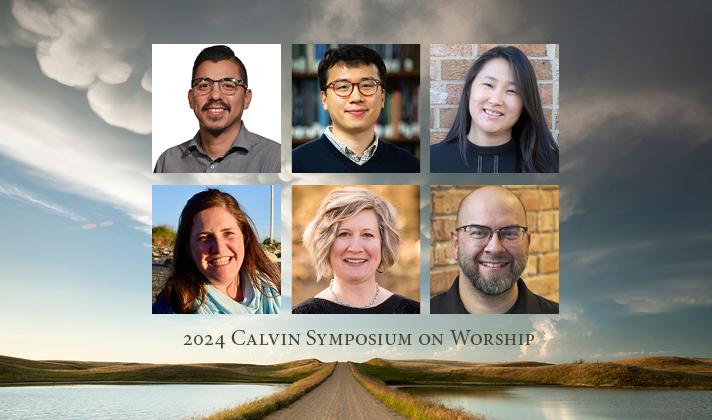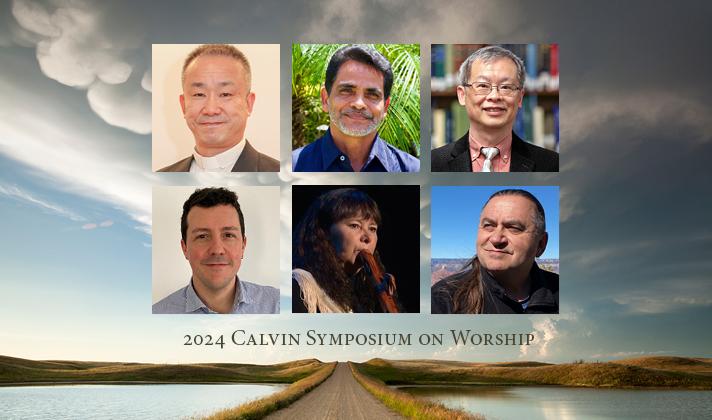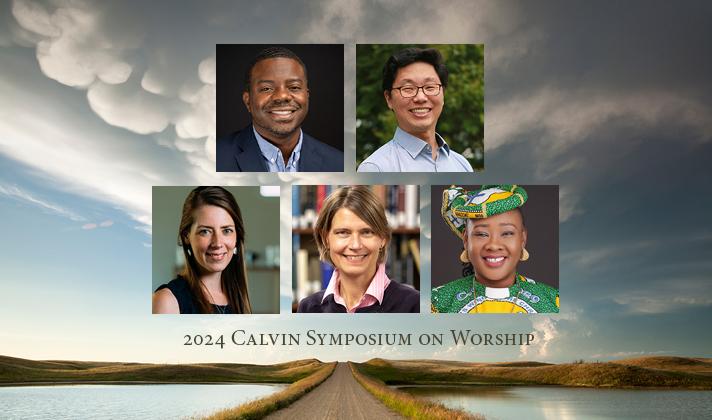A worship service from the 2021 online Calvin Symposium on Worship.
Participants:
Call to Worship and Opening Song: Western Theological Seminary, Holland, Michigan
Psalm 23: Noel Snyder, reader, Rebecca Snippe, piano
Call to Confession: Urban Doxology
Prayer of Confession: David Bailey
Song of Response: Wendell Kimbrough
Scripture Reading from Romans 8:18-25, Sermon, Prayer of Application: Najla Kassab
Choral Response: Calvin University Capella, Pearl Shangkuan, director, Linda Hoisington, piano
Prayers of the People: Rev. Dr. Samuel B. Reeves
Song of Response: Jeremy Zeyl and churches throughout Canada
Blessing: Stanley Jim
Sung Blessing: Nii Kpakpo Adoteye-Anum, Luke Enders, Nate Glasper, Jr., Solomon Kim, Carlos Lemagne, Debra Perry, Ruth Vanden Bos, Natasha Vedder, Tracie Wiersma, and Calvin University faculty and staff
Location: Beirut, Lebanon
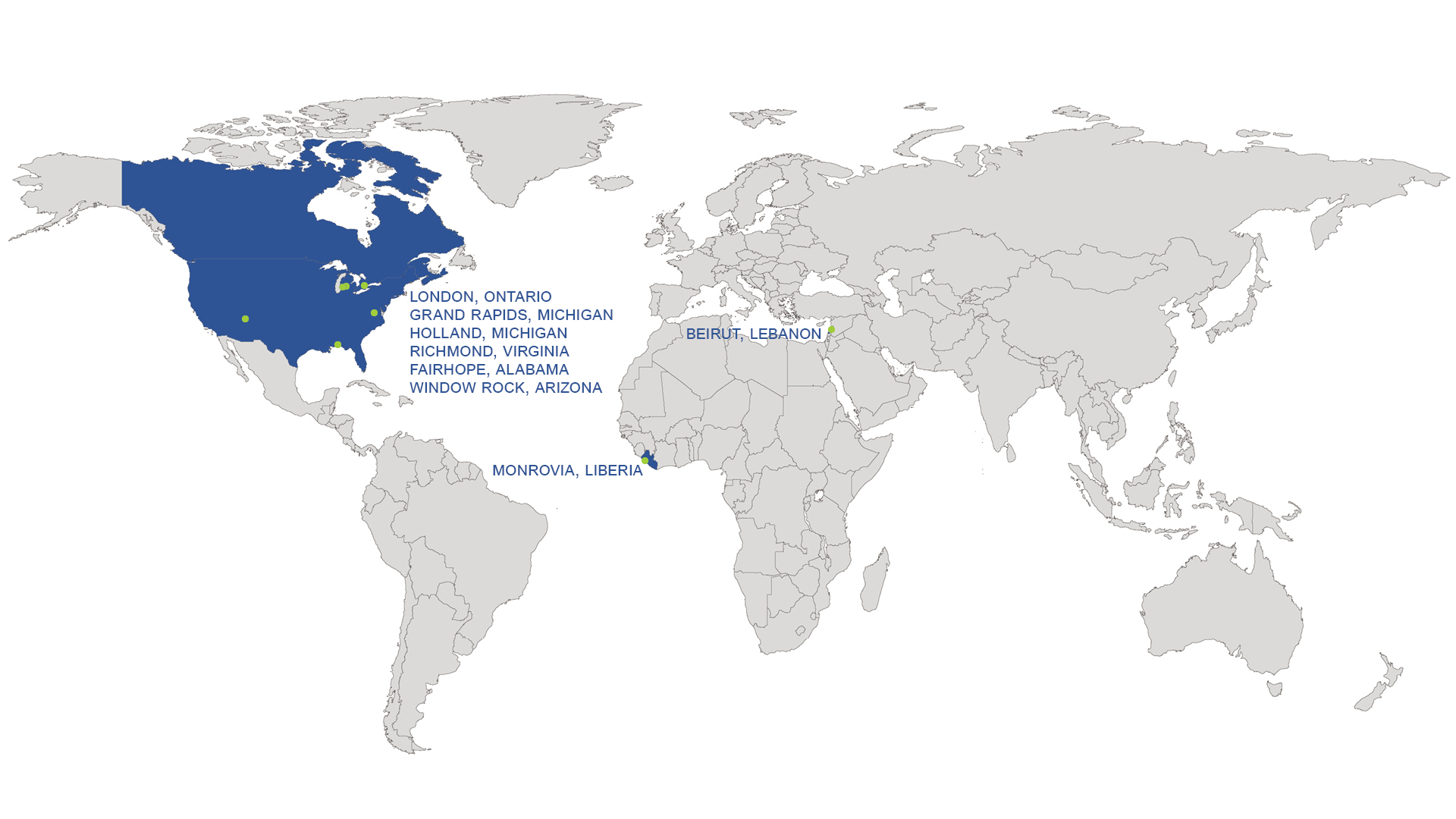
Order of Worship and Copyrights:
Call to Worship and Opening Song
“Ven Espiritu Santo”
Text and Music: Louis Marcel Illenseer © 2009 Louis Marcel Illenseer; tr. Jan Evens © 2009 Faith Alive Christian Resources; arr. Horacio Ruben Vivares © 2009 Horacio Ruben Vivares
All rights reserved. OneLicense.net A-703303.
Psalm 23
The Message
Music: RESIGNATION; W. Walker’s Southern Harmony, 1835
Call to Confession
“God Not Guns”
Text and Music: Psalm 10; Urban Doxology © 2020 Urban Doxology
Used by permission. CCLI #400063.
Prayer of Confession
Assurance of Pardon
Romans 8:1-4
Sign language from the American Sign Language Version Bible
Deaf Missions. Used by permission.
Song of Response
“I’ll Not Be Shaken”
Text and Music: Psalm 62; Wendell Kimbrough © 2016 Wendell Kimbrough
Used by permission.
Scripture Reading from Romans 8:18-25, Sermon, Prayer of Application
Choral Response: “You Do Not Walk Alone”
Text: traditional Irish blessing
Music: Elaine Hagenberg © 2019 Beckenhorst Press, Inc.
Used by permission. CCLI #400063.
Prayers of the People
Song of Response
“I Am Not My Own”
Text and Music: Heidelberg Catechism, Question and Answer 1; Jeremy Zeyl © Jeremy Zeyl
Used by permission.
Blessing
Sung Blessing
“The Blessing”
Text and Music: Chris Brown, Cody Carnes, Kari Jobe, and Steven Furtick © 2020 Capitol CMG Paragon
Used by permission. CCLI #400063.
"Sermon Transcript"
I consider that the sufferings of this present time are not worth comparing with the glory about to be revealed to us. For the creation waits with eager longing for the revealing of the children of God; for the creation was subjected to futility, not of its own will but by the will of the one who subjected it, in hope that the creation itself will be set free from its bondage to decay and will obtain the freedom of the glory of the children of God. We know that the whole creation has been groaning in labor pains until now; and not only the creation, but we ourselves, who have the first fruits of the Spirit, groan inwardly while we wait for adoption, the redemption of our bodies. For in hope we were saved. Now hope that is seen is not hope. For who hopes for what is seen? But if we hope for what we do not see, we wait for it with patience (NRSV).
You wake up in the morning and dress up enthusiastically to face your new day. After you were locked in for several weeks due to coronavirus and your plans were interrupted, you collect yourself and want to start a new day. Despite the fact that you cannot withdraw money from your bank account, and the currency with which you earn your salary is devalued and can hardly buy you your basic needs, still you decide to remain positive and continue your life. You do not want to be discouraged. You reach your office and have a day of work, and just as you are about to leave your office, a big explosion rocks the city, your office collapses, glass falls on you, and people around you are bleeding, and some of them are dead. You collect yourself, you stand up, and you . . . thank God you are still alive.
This is not a scary movie, or a Hollywood new production. This is life in Beirut on August 4. The intensity of suffering that the Lebanese faced on that day and are still facing today presents a great challenge on how we perceive the relation between suffering and hope, suffering and glory. The text in Romans 8:18–25 is seen as a difficult text to the people who suffer. It raises questions on how to deal with daily pain . Does the text speak about accepting our suffering and waiting for tomorrow, where later we will be glorified? Is it a call for waiting for the future, for the unseen, the unknown? There is a tendency in some preaching around this text to invite people to accept their pain and wait to receive hope in the future, in the life after, which brings glory to our lives. It is postponed hope, and we are asked to wait in patience. Fred Craddock in one of his sermons says that hope is many times presented as a “cushion word,” a term for postponing things. An important approach in tackling this text in Romans is to stress that the “glory” in verse 18 does not envision a future immortality for individual Christian believers, but it refers to both the restoration of God’s presence with the people now. The already and not-yet hope, and the already and not-yet glory.
A pastor shared with me lately how difficult it is to preach hope when all around us looks hopeless and we feel helpless, starting from the coronavirus, to the economic situation, to the war in Lebanon and in the Middle East, to the refugee issue—all around us looks in pain and groans. Creation groans, and we groan with creation.
The text says, “We know that the whole creation has been groaning in labor pains until now; and not only the creation, but we ourselves . . . groan inwardly.”
Today the world groans with so many kinds of suffering, whether it is brokenness, health issues, hunger, physical and psychological challenges, insecurity about the future. We share the cry of the psalmist in Psalm 13:
“How long, O Lord? Will you forget me forever?
How long will you hide your face from me?” (Ps. 13:1–2).
Paul as a man of suffering understands well what it means to be facing pain. He himself was imprisoned and faced different kinds of suffering. Even Paul’s audience in Rome were suffering under Caesar. Still Paul speaks about eager anticipation even in the middle of suffering.
He presents two images about anticipation. The first image, he says, “For the creation waits with eager longing for the revealing of the children of God.” It is the image of somebody who’s standing on his or her tiptoes, stretching the neck, craning forward, trying to see what’s coming (John Stott). The second image he uses is the image of a women in labor. He says, “We know that the whole creation has been groaning in labor pains.”
In both images—the image of the person who’s leaning forward, stretching himself, and the image of the woman in labor—in both images there is a mixed feeling of suffering and waiting, expecting that something will happen in the now. It might not be instant, but something will happen and will bring hope.
In Arabic there are two words for hope. One is ‘Amal (امل), hope that is related to our situation, and Rajaa’ (رجاء), which is hope is beyond our present situation. The first word, ‘Amal, is to be locked in the now, while the other, Rajaa’, is to know that the present suffering does not have the last word, that we stay on our tiptoes waiting that God will change the present suffering, trusting that in the midst of the pain we will hear the voice of the child born. We wait in eager expectations that God will interfere through the present. Our struggle remains in how to live between the already and not yet and trust that we live in hope for a better tomorrow. We do not allow suffering to close our eyes on the hope to come. Hope is in the now, it is never a comfort cushion to postpone things.
In one of the damaged hospitals in Beirut. a nurse shared her story about how she rescued three babies who were triplets in the intensive nursery room in the hospital. When the wall fell, she held the three babies close to her chest and made sure that they were looking at her face. “I did not want them to see the damage,” she said. “I did not want this scene of the damage to stay in their memory. I wanted them to see hope in my eyes.”
She was not merely living in the now, in the suffering, but was seeing beyond, looking for the future, thinking about how the three children will survive and have life with no scenes of damage. The nurse was not merely thinking of survival, but even a better tomorrow. To live in hope is to think of a better tomorrow, to move from survival to dignity for all and abundant life for all, to think of Rajaa’—hope that transcends our present suffering.
Today the world is overwhelmed with suffering, and creation is subject to futility (v. 20). To be subject to futility is to struggle with the frustration that we are not yet what we should be. It is living in emptiness, purposelessness, with frustration. The groaning that we share with creation is due to the feeling that we live in the emptiness where we do not live up to the call that Christ called us to. This is the journey where we feel that we are not satisfied with the way we live our faith.
One day I contacted a youth from our church who had to escape to Germany; he ended up being a refugee in an area in Germany. I checked on him, asking him how he was doing, and he said, “I have all (the) basic needs. I’m treated well, I have a good house, I have food. But I want to tell you, I feel my life is empty. There is no meaning, no purpose for life.” This young man, his life was on the receiving end instead of the giving end.
Today the world groans due to the coronavirus. Many feel that they are losing meaning. I remember that I lived in Lebanon in several wars, but never felt the pain that we are feeling today, where we are forced to be distant from our brothers and sisters, sharing our life with them, visiting them, worshiping together. We are pushed into a life where we lost that satisfaction in sharing life with the needy, this human encounter that gives us meaning. Even we cannot be in funerals of the people we love, or even in weddings. We were asked to fix our attention on our fears, our health, our safety, and this distancing pushed us to have a lonely life, a lonely ministry, lonely churches and, yes, emptiness—many times emptiness.
The Lutheran Bishop Heinrich Bedford-Strohm, president of the Council of the Evangelical Church in Germany, expresses our situation in the words saying:
Our souls are confused. All the physical signs of connectedness—hands reaching out to each other, speaking closely face to face, unmasked!, embracing each other, giving each other hug—all these physical signs, which so far have been expressions of love, have now become the enemy of love, have become a danger to the other, have become a potential source of suffering (Meditation, Basilica Dell’Aracoeli, Oct. 20, 2020).
We do not live the way we are called for. The virtual encounters help but do not bring meaning. We do not live our days the way it’s meant to be. Futility. Hopelessness. Emptiness. Even creation is less than it was created to be. It is not declared to be “very good” (Gen. 1:31). And we feel that we are not very good.
When we discover meaning in the way we live, then we see hope in the middle of our struggle. In living Jesus’ story, values, and love we start to see glory that Jesus promised. We are not locked in the tomb of our suffering and believe that there will be a better tomorrow.
During the last years while Lebanon was receiving a big number of Syrian refugees, our church discovered that many of these children have no schooling, and they are left on the streets. The church started a ministry of opening schools for Syrian refugees, where children had the opportunity to read and write and be taken care of and have a foretaste of the love of Christ. It is a ministry that gave our church meaning and hope. We discovered meaning in sharing the love of Christ with others unconditionally. It is when we discover meaning (that) we start to see hope.
In the explosion in Beirut, the youth (were the first) on the streets, helping the people to collect broken glass, sharing food, taking care of the homeless, cleaning the streets, and dedicating their time to lessen the pain. They experienced meaning in reflecting the love of Christ. To have hope is to discover that meaning in emptying oneself to share the love of Christ, to be able to share your food with the hungry, to welcome a family in your house, to open your piggy bank and give it to those who lost their homes, to visit the injured in the hospitals, to help those who feel they cannot breathe, and to stand on the side of all those who believe that their life matters. These are moments that might not change the reality of suffering, but it changes us as we regain meaning in living the gospel and walking the steps of Christ who cares. Then we feel the strength from above, the courage to continue despite all, the glory of our Lord, Emmanuel, is with us. This persistence might lead to change and might lead to justice.
It is easy at this time of suffering, where the world is shaken by a new reality, that people are tempted to think only of themselves and their loved ones, but that is not a Christian response. As Pope Francis put it, “The true gospel bids us to take up the cross of others.”
In a recent International Meeting of Prayer for Peace that happened in Rome, the Ecumenical Patriarch of Constantinople Bartholomew said, “We live in a common home. It is like the house of mirrors where, whenever we look at ourselves in the mirror, we see the image of our brother and sister, and we see the work of the divine Presence in every human being. As we see the image of the suffering reflected in our image, we discover hope in living together and reflecting each other’s image.”
Hope in Christ invites us into this room of mirrors where we see others and see their pain. Today the biggest sin that we could face in our life is the sin of indifference. In this room of mirrors the revelation of the children of God, the restoration of humankind to its true calling (of) caring and preserving happens. (Gen. 2:15). To be in this room of mirrors is to live in continuous reflection of the pain of others on our image, on our reality. Then, we can never look at ourselves without the image of others. Our image coincides with the images of my brother and sister who are suffering.
George Watts, in a painting that is well known entitled “Hope,” . portrays the image of a woman sitting upon a globe, blindfolded, with an instrument in her arms that appears to have lost all of its strings but one. The picture shows pain, fear, discouragement. The strings are not in place; (they’re) broken, and only one string is left.
Still, the woman insists on continuing to play on the string that is left. One string could give the instrument its integrity and give the woman the ability to make beautiful music. That one string provided hope that there was still a promise of a different future for her and her instrument. One string could make a tune—probably not a perfect tune, but a tune that gives hope. No matter whether we are a majority or a minority, we can produce a tune. It is a different tune that the world may not give, but it does make a difference.
Friends, are we looking for hope today? It might not be seen, but it is among us as we stand on our tiptoes, eager to see. It is among us as we wait to hear the sound of the child. It’s among us as we find meaning in helping one another. It is among us as we are in the house of mirrors and we see our faces with the faces of the suffering around us. I It is among us as we hold the last string to play a tune, to live in eager expectation.
Hope is never a comfort cushion to postpone things for tomorrow. It is now. It is you and I worshiping together. It is the glory revealed to us every day.
To God be all glory who sends us out today. Amen.

